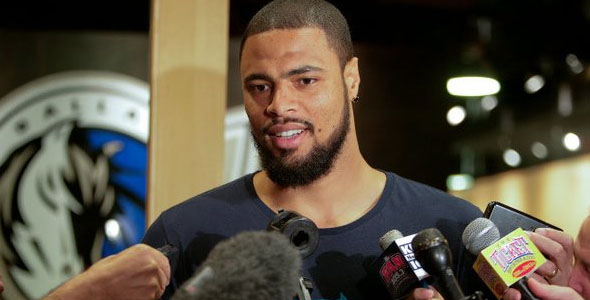
Insofar as job stability exists in NBA front offices, Houston Rockets general manager Daryl Morey has long seemed secure in his position.
Over the years, he has had carte blanche to conjure cap space through salary dumps to chase free agents. He has enjoyed the freedom to be hyper-aggressive on the trade market. He has been lauded for his ability to keep the Rockets in pursuit of every available big name, even if those chases didn’t pan out (Chris Bosh) or pay enough dividends (Dwight Howard).
On the heels of a disappointing 41-41 finish last season, though, Morey may officially be on the hot seat. League sources told ESPN.com’s Zach Lowe as much:
And then this past summer the Rockets agreed to pay Anderson and Gordon $33 million per year combined. Those are not golden trade chips; Anderson’s deal is a better candidate for the stretch provision than to become some appealing piece of bait in a mega-trade. The signings leave Houston with only about $10 million in projected cap space this summer — way short of what it takes to land a star.
The moves marked an undeniable pivot. Sources familiar with the process say Houston’s owner, Leslie Alexander, assumed a larger role in the team-building process, and that he was eager to rebound at any cost from the malaise of last season. The moves signaled Morey’s position may not be quite as secure as it once was, league sources say. The dismissal of Gianluca Pascucci, Houston’s former vice president of player personnel and a Morey confidant, was widely seen as a shot across the bow at Morey. Morey says the decision was his, and the Nets quickly snapped up Pascucci after several teams expressed interest in him.
It makes some semblance of sense that Morey is in this precarious situation, if only because he’s been ostensibly safe for so long. The Rockets are working off four consecutive playoff berths, yes, but three of them, including last year’s, were first-round exits.
Not even the Rockets’ Western Conference Finals appearance in 2015 eases the sting of this protracted mediocrity. They needed to erase a 3-1 series deficit in the second round to get there, and were then bounced in five games against the eventual-champion Golden State Warriors.
Here’s the question, then, if Morey really is on the executive chopping block: What constitutes a success this season? There’s no way the Rockets can expect to compete with the Warriors, even with their offense. But does that mean Houston needs to be on the Los Angeles Clippers’ and San Antonio Spurs’ levels for Morey to keep his job? Is this solely a matter of the Rockets making it out of the first round? Winning 50 regular-season games?
What will it take to ensure Morey is back in Houston for 2017-18?
One way or another, I guess we’re about to find out.



















